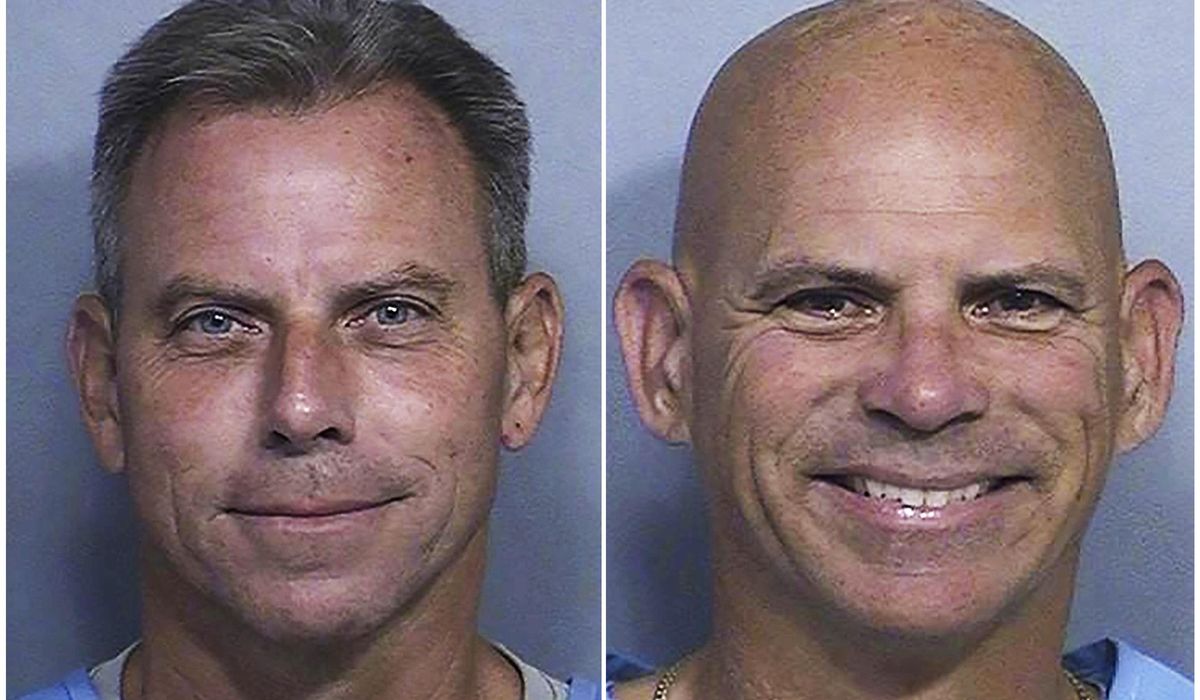


The resentencing hearing of Lyle and Erik Menendez, brothers convicted of murdering their parents in a case that captivated the nation 35 years ago, was postponed until January on Monday.
A Los Angeles Superior Court judge pushed the hearing back to Jan. 30, 2025, so the incoming District Attorney Nathan Hochman, who will be sworn in next week, will have time to get up to speed on the case. The resentencing hearing was originally scheduled for Dec. 11.
Defense Attorney Mark Geragos requested that Lyle, 56, and Erik, 53, be resentenced for voluntary manslaughter — which would essentially guarantee their immediate release given they’ve both been behind bars since 1996. The presiding judge will make that decision during the January hearing.
Sitting District Attorney George Gascon, who made the bombshell proposal last month to seek resentencing for infamous killers, said at the time that there was too much premeditation when the brothers killed Jose and Mary Louise “Kitty” Menendez to support immediate release, but that the brothers had “paid their debt to society.”
He also said he believes the brothers’ original defense argument: that the killings were a response to years of sexual abuse from their father, a former music executive at RCA Records.
Mr. Gascon said the brothers are eligible for youthful parole under state law because Lyle and Erik were both younger than 26 when they killed their parents in 1989.
But Mr. Gascon, who was elected into office in 2020 on a platform that promised for more resentencings, lost his reelection bid earlier this month to Mr. Hochman, an independent candidate.
When Mr. Gascon shared his resentencing proposal last month, Mr. Hochman hit back by claiming the announcement was a Hail Mary of sorts to salvage the incumbent’s slim chances at holding office. Mr. Hochman, a former assistant U.S. attorney general, won the election overwhelmingly.
Mr. Gascon also appeared to admit his decision to seek the Menendez brothers’ resentencing was, in part, due to renewed interest in the case from the general public.
Much of that came from “The Menendez Brothers,” a hit Netflix documentary released in October about the murders and featuring lengthy prison interviews with Lyle and Erik.
The spectacle proved to be alive and well Monday outside the Van Nuys Courthouse — hordes of media members had cameras stationed yards away from the building’s entrance as they waited for the non-televised proceedings to end.
Sixteen members of the public were allowed to sit in on the hearing as well, each of whom were chosen in a lottery system before court went into session.
The Menendez killings were particularly savage. Both victims were shot at point-blank range.
Investigators said the brothers, 21 and 18 at the time, left the family’s Beverly Hills home to reload a shotgun so they could again shoot their mother, who was trying to crawl away from the carnage. They shot her in the head again.
The first trial — which was televised and generated massive media intrigue — ended in a mistrial, but prosecutors took up the case again shortly afterward and secured life sentences for both killers.
The brothers’ appeals were repeatedly denied after imprisonment, but two new pieces of evidence have swayed public opinion in recent years.
The first piece was discovered in 2018 by Robert Rand, author of “The Menendez Murders,” when he said he found a letter Erik wrote to his cousin Andy Cano discussing ongoing sexual abuse from his father.
The letter was dated nine months before the killings, when Erik was 17.
The second piece of evidence originated from claims by former Menudo member Roy Rossello, who said in a docu-series last year that he was frequently raped by Jose Menendez in the 1980s when the father was the band’s manager.
Mr. Gascon advocated for clemency for the killers in letters to Gov. Gavin Newsom, a Democrat. But the governor said last week he will let Mr. Hochman, the incoming DA, conduct his own review of the resentencing proposal before deciding whether to grant them clemency.
• Matt Delaney can be reached at mdelaney@washingtontimes.com.
